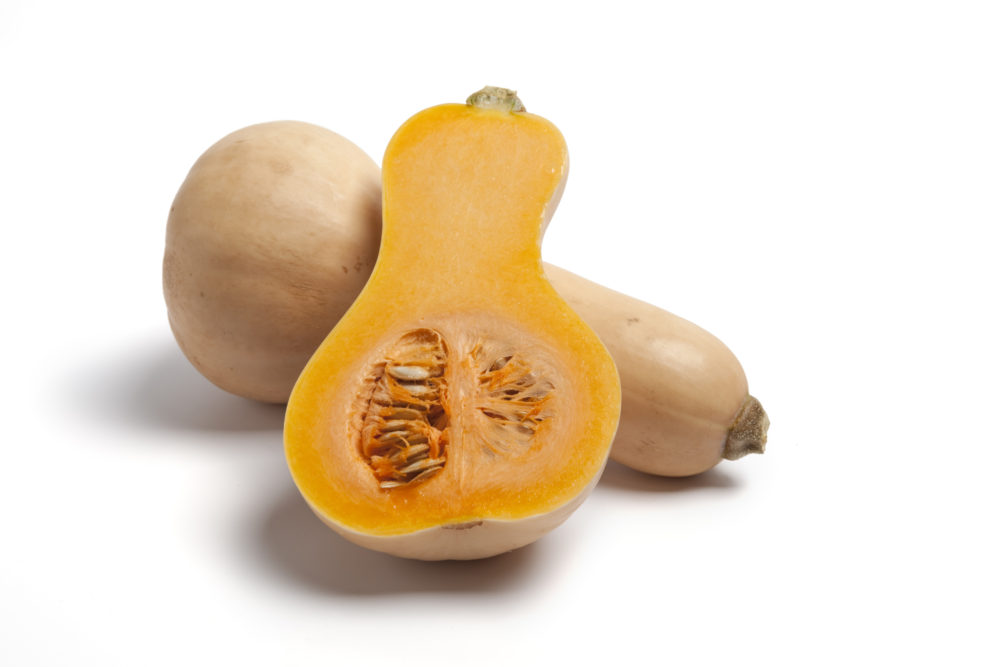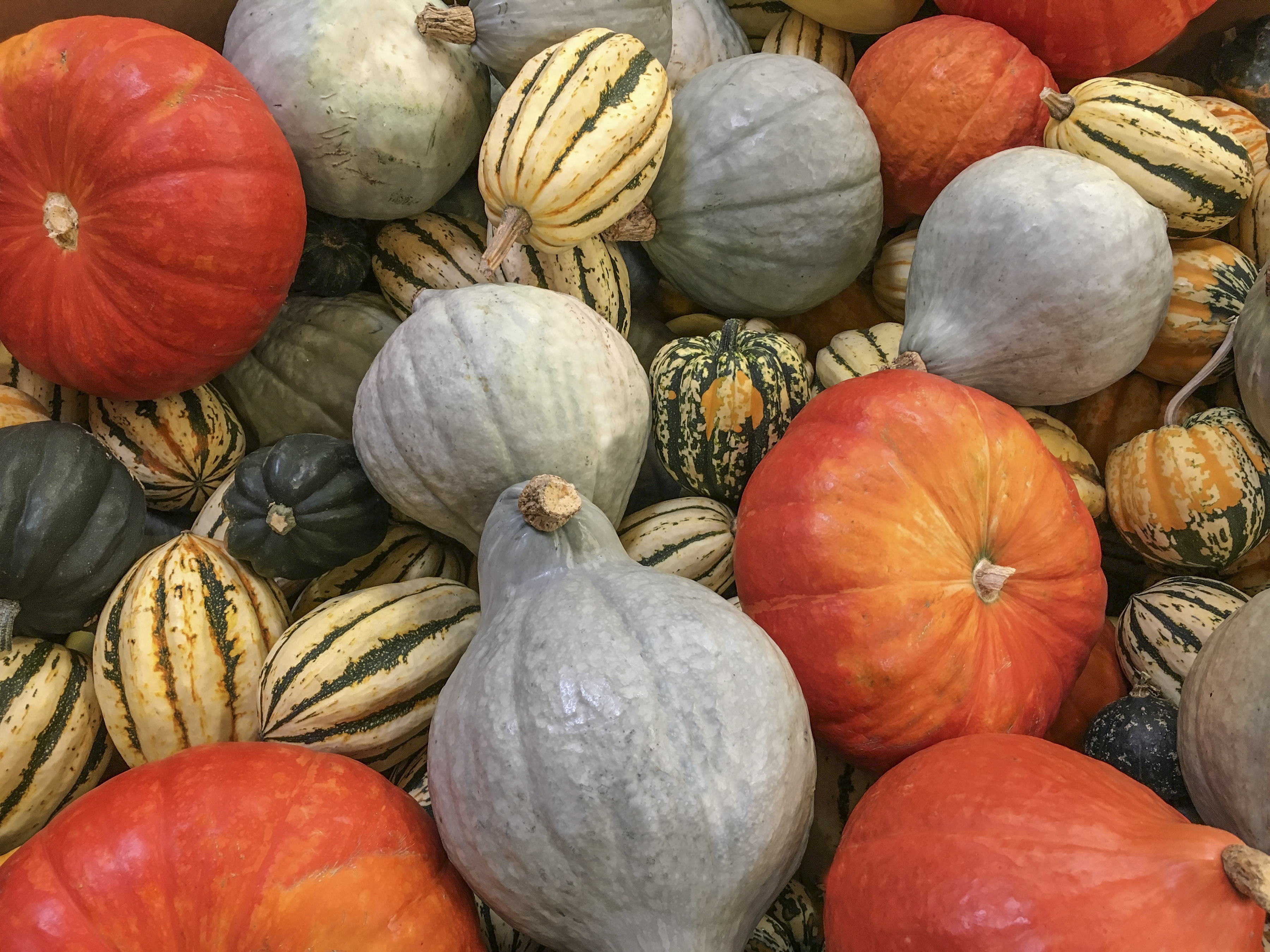Squash, Butternut

Availability:
| J | F | M | A | M | J | J | A | S | O | N | D |
Description:
Butternut Squash are members of the Cucurbitaceae family, along with pumpkins. Other family members are melons and cucumbers.
The USDA has two grades for hard or winter squashes: US #1 or US#2. Both are based mainly on external factors including blemishes, scarring, uniformity of size shape, and color for the variety… as well as some other internal factors… but really, it’s about the external appearance.
The Butternut squash is probably one of the easiest to use because the seed cavity is so small and it’s all flesh up in the neck area. Because of it, this squash is the most versatile. It has a smooth, rich flesh. The skin can be a little too thick to be palatable, so this one you need to peel.
You could shred and it raw on your salads, or you could spiralize it into a pasta alternative. It’s also great roasted and cubed for a great mashed potato alternative. Since it mashes so well, this squash is commonly used as a stuffing for dumplings, ravioli, or made into gnocchi. Because the flesh is so smooth and the flavor is so mild, this is a great soup squash and purees extremely well and teams up with hearty, autumn herbs, like sage.
Recommended Storage Temperature
They don’t like the cold, keep it in the warmer part of your walk-in. Usually the warmest part of your cooler is by the door. Excessive cold will cause the surface to pit and exacerbate any decay. Squash are hardy, if you have limited cooler space, you can stack the cases. They will last a while in your cooler if stored properly. The temperature fluctuates from the front to the back of the cooler due to the location of the cooling unit and frequency of the door being opened. Download our PDF for more cooler storage hints.
Check out what’s going on this week. For our latest market update, please see The FreshPress.
You can also click here to be notified when we post fresh new videos.


